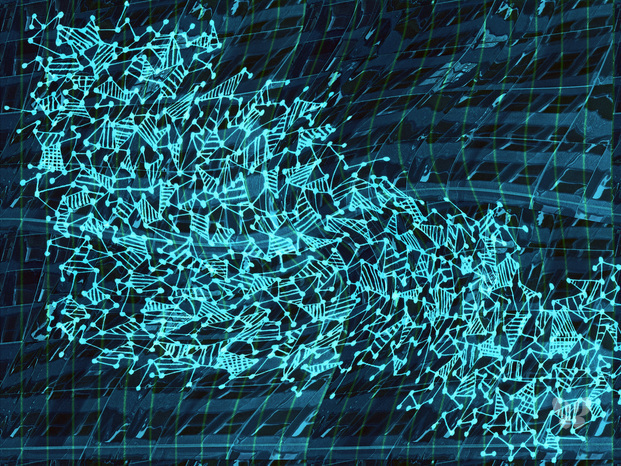France, Music, 1967
Luc
Ferrari
Luc Ferrari’s (b. 1929 in Paris; d. 2005 in Arezzo, Italy) stay in Berlin in 1967 marked an important turning point in his path as a composer. Just prior to the social upheavals that would become more than apparent in 1968, the composer himself was also going through a period of radical changes.
In 1967, Ferrari was working not only with music but also with the medium of film. Through his connection to Hansjörg Pauli, head of the music department at NDR television, he was commissioned to compose music for a film about the visual artist Jean Tinguely, and was also given the opportunity to make his own film for television, entitled Les jeunes filles. In 1965, Luc Ferrari had begun working on the documentary film series Les Grandes Répétitions with director Gérard Patris, which portrayed five musical personalities: Olivier Messiaen, Edgar Varèse, Karlheinz Stockhausen, Hermann Scherchen, and Cecil Taylor.
Ferrari’s involvement with film gave him the advantage of not having to rely solely on the structures of the music business. Shortly before beginning his fellowship at the DAAD Artists-in-Berlin Program (BKP), he had split from the Parisian Groupe de Musique Concrète led by Pierre Schaeffer, with which he had been closely affiliated since 1958. Ferrari described the impact of his decision in a letter to Schaeffer, sent from Berlin on July 3, 1967, in which he complains about being increasingly ignored by the music world. And he adds: “My stay in Berlin gives me the opportunity to reassess my position, my human and musical condition.”
Since the “human condition” is inextricably tied to social conditions, Ferrari also continued to work in Berlin on his six-part series Société, started in 1965. He incorporated into this series his filmic milieu study Les jeunes filles, which features works that only exist as conceptual playing instructions. The second piece in this series, however, written in 1967, has a fully composed score and an unusual additional title: Et si le Piano était un Corps de Femme (And if the piano were the body of a woman). Containing music-theatrical elements, the piece is a more or less absurd depiction of gender stereotypes, in which the grand piano symbolizes the woman’s body being harassed and maltreated by male musicians.
In 1967 Ferrari also developed the composition Interrupteur for chamber orchestra, in which he focuses—in contrast to the metaphor expressed in Société II—on purely musical aspects, and specifically on the parameter of duration. Utilizing parallel, linear sound sequences, this duration is experienced as a seemingly static sound surface, regularly interrupted, however, by brief sound impulses.
Ferrari’s most famous composition takes another completely different musical approach. In the tape piece Presque Rien no. 1—Le Lever du Jour au Bord de la Mer, Ferrari radically brings to fruition what led to the break with the orthodox ideology of musique concrète: his interest in acoustic recordings from nature and social realities, left unprocessed so that the source material retains its original meaning and avoids becoming abstract sound. Instead, Ferrari produces just the opposite here: a meticulously designed staging of existing realities—in this case, daybreak in a small fishing village in Croatia. Although the piece was not released on record until 1970 by Deutsche Grammophon—which expressed disappointment with this “music without music”—Ferrari began work on Presque Rien in 1967 while on vacation during his Berlin fellowship.
Text: Thomas Groetz
Translation: Erik Smith



